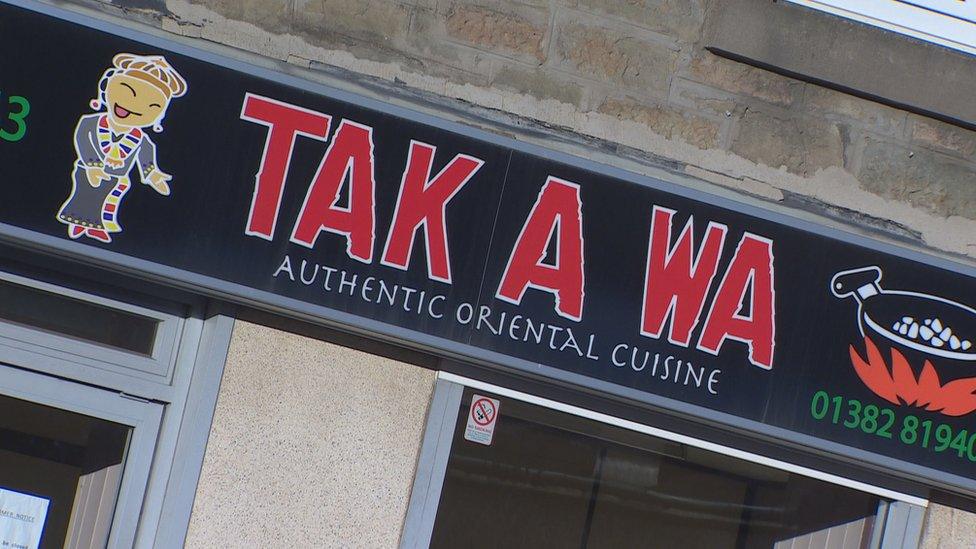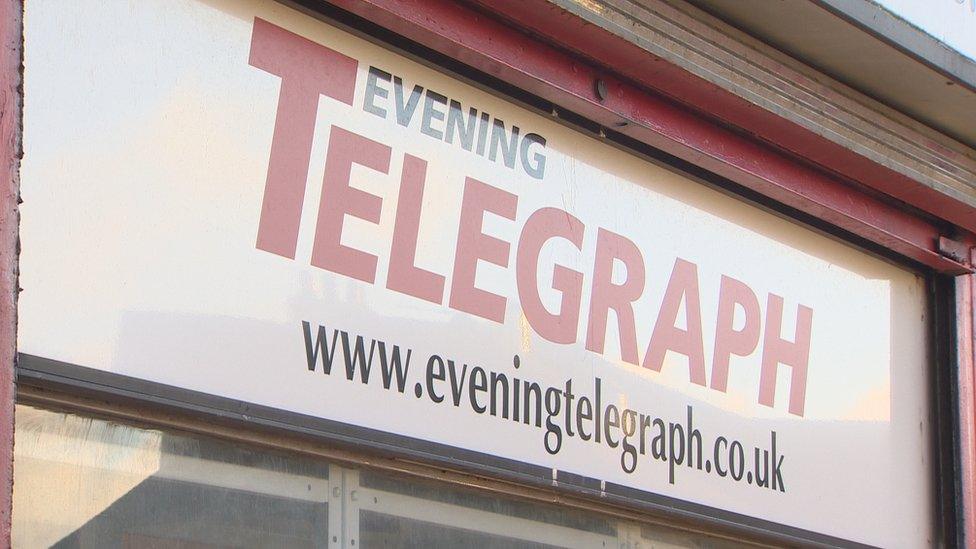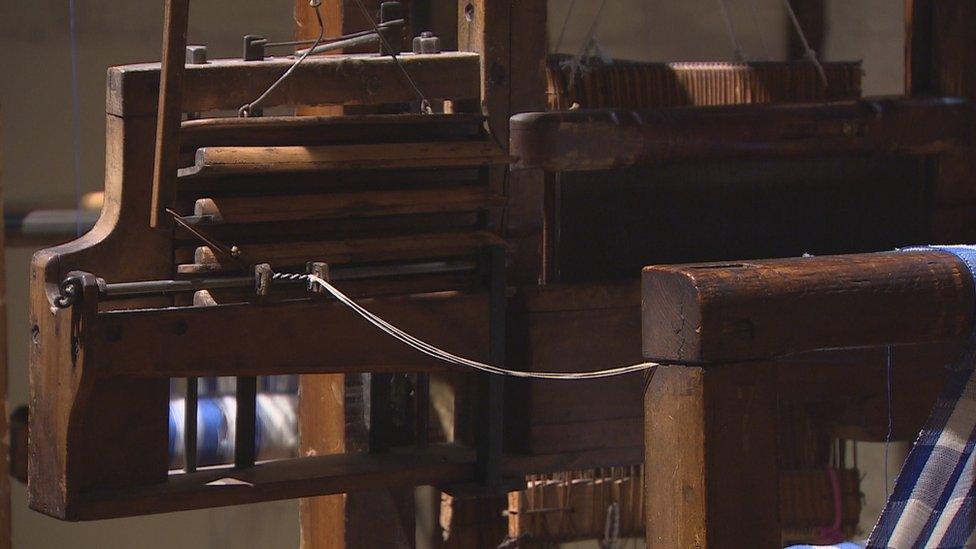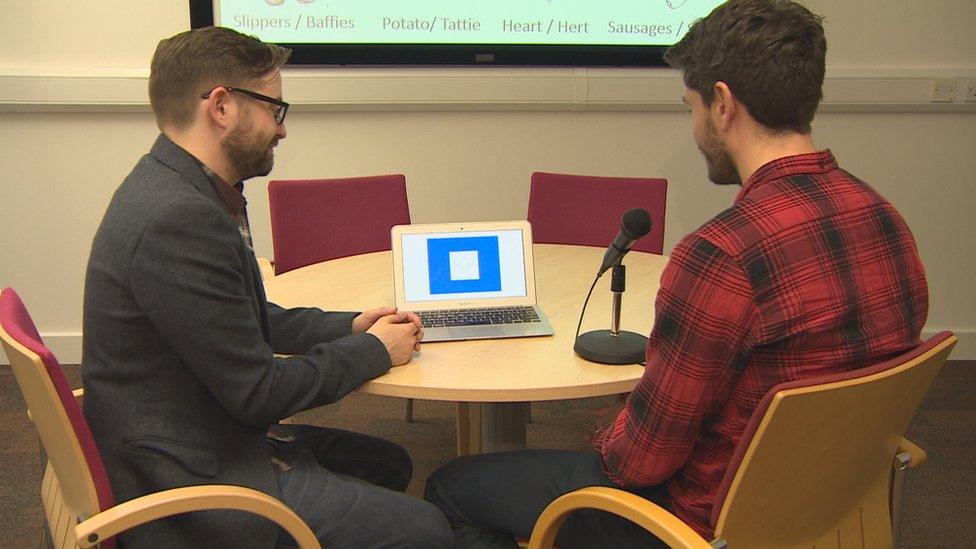Scots dialects 'as good as a second language'
- Published
Understanding 'Eh'll heh a peh' is like being bilingual
Do you speak Dundonian? Have you sometimes felt the rest of Scotland doesn't understand you?
Researchers at Abertay University in Dundee have good news for you. Being fluent in both your dialect and standard English is as good as speaking two different languages.
That is when it comes to how your brain handles them.
They have found that the brains of people who are equally fluent in two dialects work in the same way as those who speak two languages.

The Dundonian dialect likes to flatten its vowels
Colleagues in Germany have found the same effect there, meaning the results are likely to apply to all dialects.
Language of the playground
Full disclosure: I am not a Dundonian. But I have lived and worked there twice and loved what sometimes seems to be Scotland's most underrated city.
I grew to admire the Dundonian way with words. It's a dialect of Scots but with an attitude all its own, something more than an accent.
Like other dialects of Scots it was once derided as the language of the playground. Parents feared that if their children spoke it they wouldn't get on.

Dundee is enjoying a renaissance with the new V&A opening next year
Yet Dundonian has not just weathered the mass media age, it seems to be enjoying a renaissance and a renewed respect.
The first principle of Dundonian: flatten your vowels.
Do not attempt walk into a baker's and say "I will have a pie". You may be treated as the interloper you are.
It's "eh'll heh a peh".
A plain bridie, you say? That's a plehn bridie in Dundonian.
And an onion one as well? Ananinginganeanaw. Try repeating it a few times. It becomes almost musical.

The city's evening newspaper is referred to as the Tully
Similarly the city's esteemed afternoon paper is only called the Evening Telegraph in standard English. To Dundonians it's the Tully.
Why are the vowels not so much flattened as crushed? Opinion differs.
Some suggest the influence of the Irish immigrants who flooded into the expanding textile industry during the Industrial Revolution.

Some say Dundonians adapted how they spoke to be heard over the factory machinery
Others point to the mills themselves where, the story goes, the workers deliberately flattened their speech to make themselves heard over the machinery.
My theory, for what it's worth, is that Dundonians are Dundonians and tend to do what they like.
But we've only just begun because then we go off into the wonderland that is the Dundonian vocabulary.
A drain cover is a cundie. Its origin possibly an adaptation of the French "conduit" but in all probability lost in time.
A tenement hallway is a closie, similar enough to the term "close" in other parts of Scotland to make us aware that Dundonian is indeed a facet of the Scots tongue and not a entirely separate language.
And - please - don't smash someone's windows. If you must, pan them in.
It may not be a separate language but the Abertay University research has found that - as far as our brains are concerned - it might as well be.

Psychologist Dr Neil Kirk has been carrying out research into dialects
Psychologist Dr Neil Kirk has found same pattern of results for Dundonian speakers as has previously been found among "balanced" bilinguals - people who are equally proficient in two languages.
It's all to do with 'switch cost' - how long it takes for someone to change from speaking one dialect to another.
Dominant language
For people who are 'bidialectical' it takes the same time to switch back and forward.
But in 'monodialectals' - volunteers who learned a little Dundonian before being tested - it's the same as when people switch back from their second language to the dominant one: it takes longer.
That's because their brains had to expend more effort suppressing the dominant language and the 'switch cost' was higher.
Working with colleagues in Germany and France, the Abertay researchers also found the same pattern among speakers of Öcher Platt.
That is the dialect spoken around Aachen in western Germany which is similarly less than comprehensible to speakers of standard German.
Dr Kirk's findings were funded by the Leverhulme Trust and published in the journal Cognition.
Second language
Could being 'bidialectical' even be good for you? That is where it gets controversial.
Over the past few decades, some psychologists have concluded that being bilingual actually improves our cognitive powers. There are even suggestions that a second language could stave off Alzheimer's and dementia.
Dr Kirk and his colleagues are sceptical about this. They doubt that talking about baffies, bairns and sassages will make you brainier.
Instead he thinks his research may have more important lessons for psychology itself.
Dr Kirk says: "The implications are that in a lot of the questionnaires in which we ask people about their language use we're really not capturing the full story.
"So a lot of people will report that they speak a bit of French or they're fluent in German
"But actually they won't ever consider, for example, their knowledge or use of Scots is worth mentioning on a questionnaire like that.
"So in terms for our implications for our research they're quite huge."
Indeed some people who know they speak Dundonian or the Doric may not realise they are speaking dialects of the bigger Scots language.
So while it may not expand your cognitive abilities, the next time you deploy your dialect let no-one chide you for speaking the language of the playground.
You can always try telling them you're exercising your brain.
- Published26 October 2017
